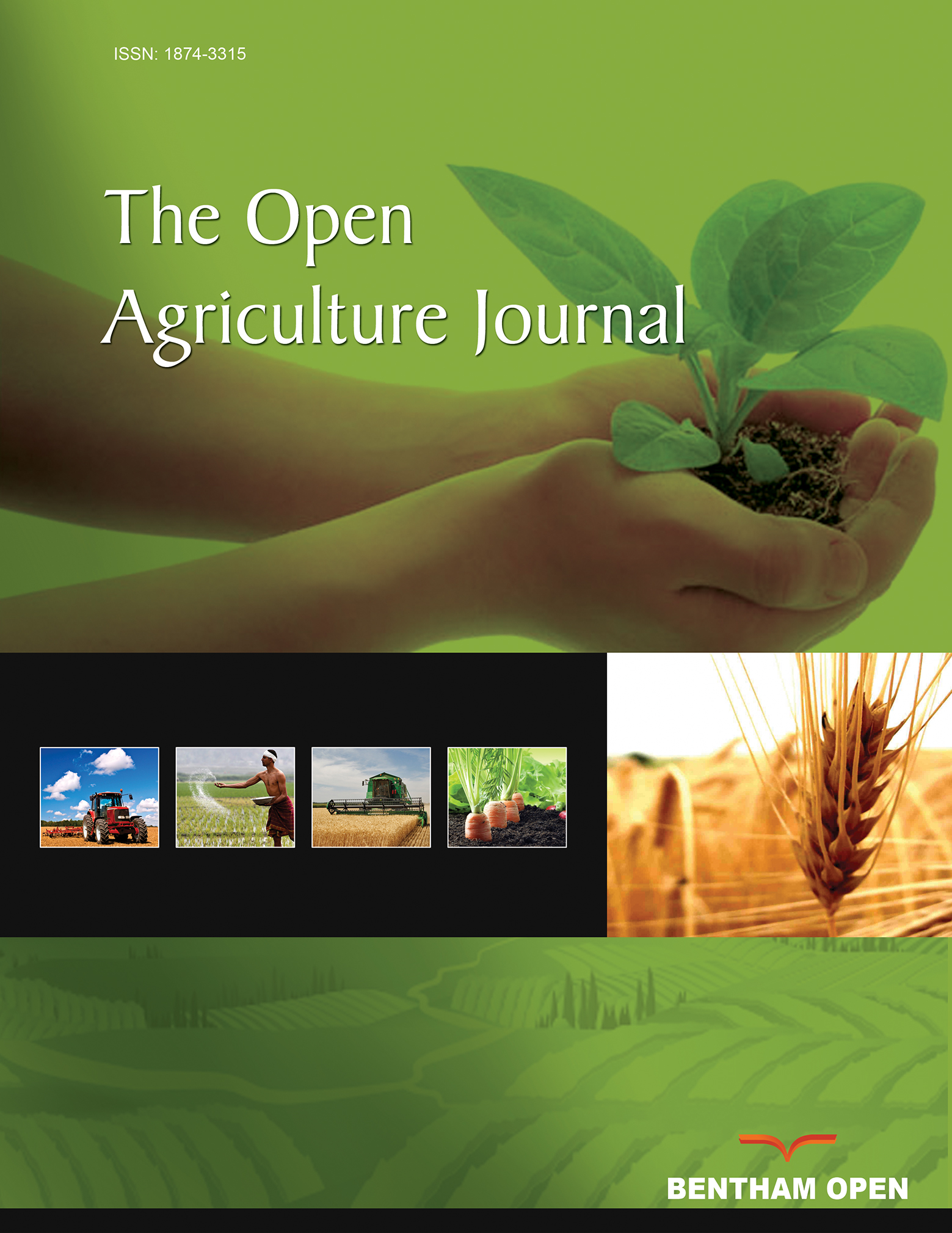All published articles of this journal are available on ScienceDirect.
Response of Seeds Quality of Sunflower to Inoculation with Single and Mixed Species of Indigenous Arbuscular Mycorrhizal Fungi
Abstract
Background:
The sunflower seeds which are popular in Syria and Mediterranean countries as a roasted or salted snack, supply a large number of nutritious components including protein and minerals. A pot experiment was conducted to determine the impact of indigenous Arbuscular Mycorrhizal Fungi (AMF) on phosphorus (P), nitrogen (N), and protein content in seeds of confection-type hybrid sunflower (Helianthus annuus L.). The indigenous AMF including Glomus intraradices, Glomus mosseae, and Glomus viscosum, were isolated from an agricultural field in Syria. The most abundant species (G. viscosum) was multiplied in monospecific culture.
Method:
Sunflower plants were inoculated with the mixture of three AMF species or with G. viscosum. The plants were harvested at full physiological maturity stage. Total N was determined using the Kjeldhal method and the detection of phosphorus was based on the colorimetric method. The rate of AMF-root colonization was determined microscopically by the gridline intersect method.
Result:
Seeds N and P content were enhanced by the inoculation of sunflower with single and mixture of AMF compared with non-AM plants. Higher content of N and P was observed in AMF mixture inoculation compared to individual inoculation with G. viscosum. The maximum protein concentration was found in the treatment of mixture AMF followed by individual inoculation with G. viscosum. The results indicated that mixed species of AMF were more species, and could be considered as a good inoculum for improving the seeds quality of sunflower grown under sustainable agriculture conditions.


